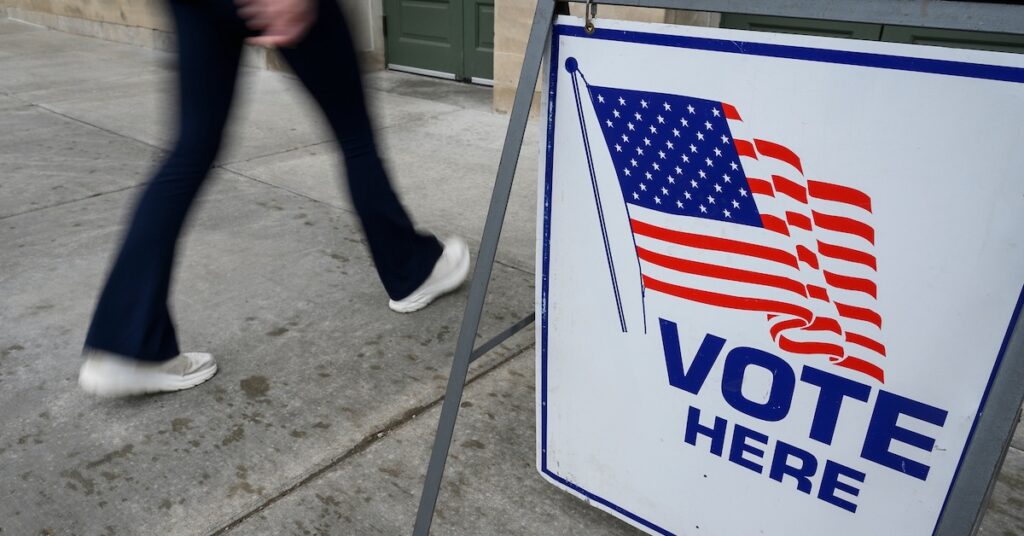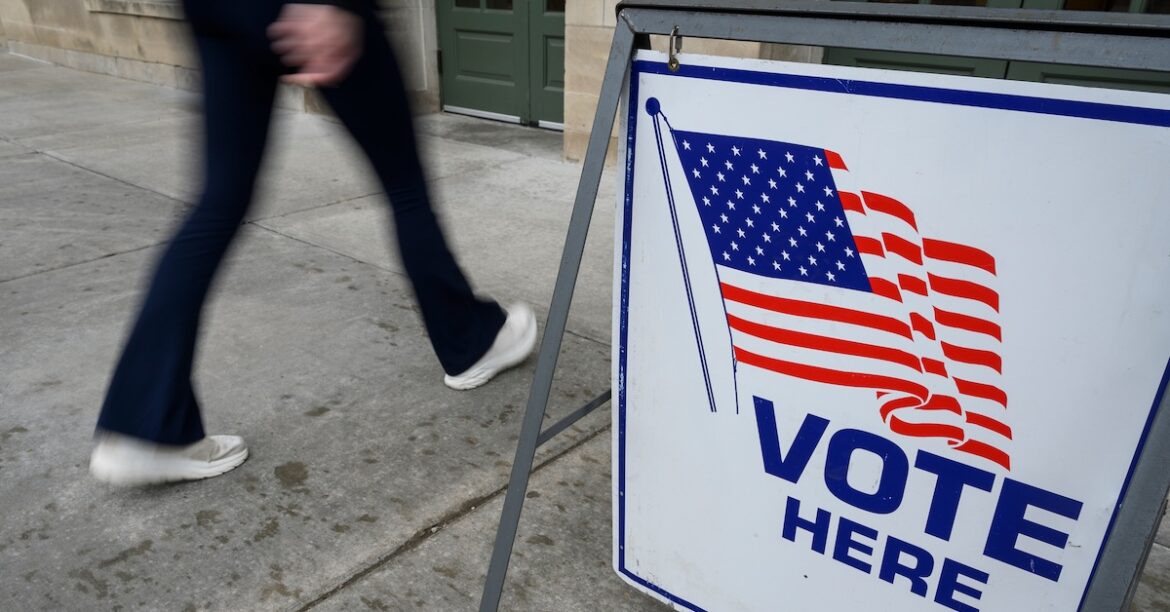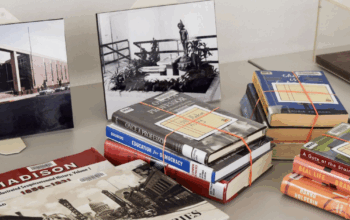A Wisconsin ballot referendum could amend the state constitution, closing the door on political debates concerning noncitizen voting in local elections.
For the past couple months, Wisconsin residents have been bombarded with political ads primarily focused on the presidential and Senate races. On Election Day, voters are expecting the usual candidate selection questions.
What they may not be expecting is a potentially constitution-altering question hiding on the bottom of the ballot.
Voters will find a yes/no referendum question asking whether they want to change the language in the Wisconsin Constitution concerning noncitizen voter eligibility to explicitly state that “only” U.S. citizens age 18 or older who live in the election district can vote.
Currently, the state constitution reads, “every United States citizen age 18 or older who is a resident of an election district in this state is a qualified elector of that district.”
The proposal was put forth by Sen. Julian Bradley, R-New Berlin, in the state Legislature late last year. The change from “every” to “only” may seem small on its face. Yet it could slam the door on future political discussions concerning noncitizen voter eligibility in local elections in Wisconsin, which, in the past, the state constitution has allowed
“We owe it to those same voters to ensure that only eligible voters are participating in our elections. This resolution would allow voters the chance to amend our constitution to ensure that only American Citizens vote in our elections,” said Bradley at a joint assembly and senate hearing in 2023.
Current federal law prohibits noncitizens from voting in federal elections (presidential and U.S. congressional races). However, California, Maryland, Vermont and Washington, D.C., have municipalities that allow noncitizens to vote in hyperlocal elections, such as those for seats in city government or on school boards, according to the Bipartisan Policy Center.
There are currently no municipalities in Wisconsin that allow noncitizens to vote in local elections, and if the proposed amendment passes, it will constitutionally ensure that remains true.
This is a pivotal fact, and some are concerned that the phrasing of the question could mistakenly imply that noncitizens are currently voting in Wisconsin.
“I do think that it creates a misimpression. The ballot question as it stands doesn’t tell you that our constitutional provision already includes United States citizenship as a qualification of voting,” said Bree Grossi Wilde, executive director of the State Democracy Research Initiative at UW–Madison.
A key frustration with the ballot referendum question is that it only asks if you support changing the wording in the constitution without explaining what the current wording is.
“You have to be curious as a voter to actually get to the question being asked and the actual changes being proposed, versus just seeing a question about suffrage that, on its surface, probably looks pretty darn good to a lot of people,” said Debra Cronmiller, the executive director of the League of Women Voters of Wisconsin, a nonpartisan political organization that advocates for public policy.
Wisconsin won’t be the only state considering tightening up constitutional language concerning the future of noncitizen voting rights this election cycle.
“Our mission is to pass constitutional amendments in states that make it so only U.S. citizens are allowed to vote in state and local elections,” said Jack Tomczak, vice president of outreach for Americans for Citizen Voting, a political organization aimed at eliminating noncitizen voting. “We’ve got eight amendments this November, and then we will continue to try to get other states to adopt citizen-only voting amendments going forward.”
Americans for Citizen Voting is backing the referendum in Wisconsin along with similar referendums in Idaho, Iowa, Kentucky, Missouri, North Carolina, Oklahoma and South Carolina, according to its website.
“We drafted this resolution to ensure our state’s constitution is clear that only U.S. citizens are eligible to vote in Wisconsin,” Assembly Majority Leader Tyler August, R-Walworth, wrote in an email to Madison Commons when asked about his motivation for supporting the referendum.
This has not always been the case. Between 1848 and 1912, a state constitution provision granted noncitizens in Wisconsin the right to vote as long as they were white men aged 21 or older, had lived in the state for at least a year and had declared their intent to become U.S. citizens, according to Wilde.
Wisconsin voters agreed to remove that provision in 1908 with a sunset clause, meaning it didn’t go into effect until 1912, according to Wilde.
Noncitizen is an umbrella term that includes different levels of immigration status in the United States.
“Noncitizens could include people who are here on an undocumented basis. Some of the municipalities that are allowing noncitizens to vote in local elections don’t require documentation. Some of them do. Some of them require you to be a permanent resident, have a green card, or the appropriate visas,” Wilde said.
Green card holders, noncitizens who have permanent residency status in the United States, are legally referred to as lawful permanent residents, or LPRs. LPRs can seek employment, own property, receive financial aid for college and even enlist in the military, according to the Department of Homeland Security.
Some opponents to the amendment aren’t advocating for noncitizen voting, they just believe the change to the constitution is unnecessary.
“Its need is unclear and it could create uncertainty about the significance of our voting rights and the importance of voting rights in Wisconsin, that’s my understanding of the opposition,” said Wilde, summarizing some of the opponents’ objections.
On the other hand, some immigrant rights advocacy groups support the idea of a future that allows noncitizens to participate in local democracy.
“Hopefully in the future, like the way it happens in other countries, people who have been here for a long time can vote,” said Alexandra Guevara, the communications director at Voces De La Frontera, an immigrant rights advocacy group.
“I can’t vote, but I am a resident, right? My kids go to school. I participate in the community. I hope that there’s a time when I could actually make basic decisions by voting at my school board or in my municipality where decisions are made that actually affect me,” Guevara said.
As of Oct. 10, 199,206 absentee voters have already made their choices, cast their votes and returned their ballots, according to the Wisconsin Elections Commission.
The results of the referendum will be announced after the election on Nov. 5.






